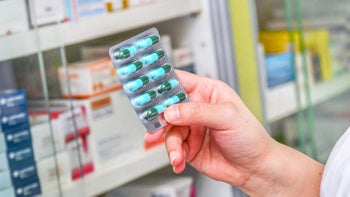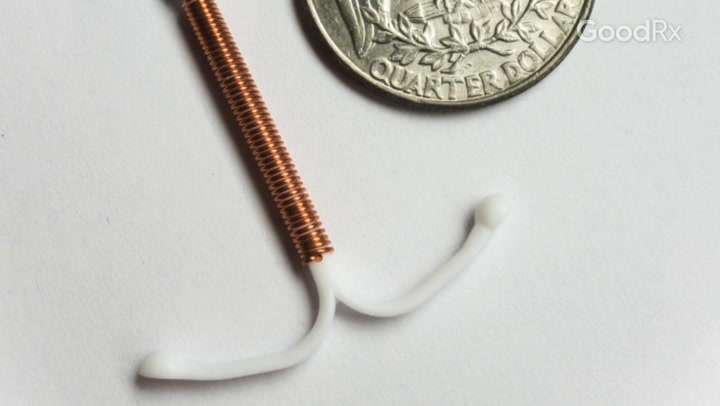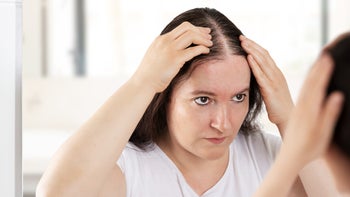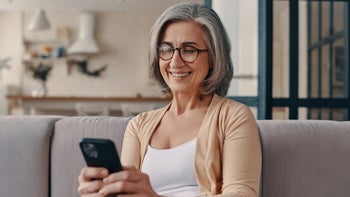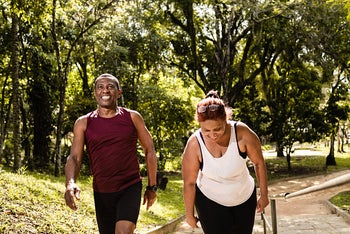
Is There Viagra for Women? What to Know About Using Medication to Boost Your Sex Life
Key takeaways:
Viagra is an FDA-approved medication for erectile dysfunction in men. But it’s sometimes used off-label in women, too.
Viagra works by increasing blood flow to your genitals. For some women, this may help with sexual pleasure and satisfaction.
There are two FDA-approved “female Viagra” medications, too: Addyi and Vyleesi. These are used to treat low libido in premenopausal women, though it’s not clear how well they work.
If you’re having problems in your sex life, there are many other medications, supplements, and lifestyle changes that may also help.
Access savings on related medications
Table of contents
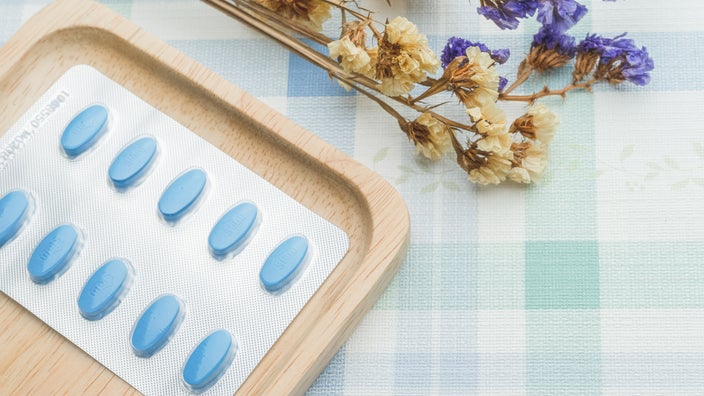
If you’re having trouble in your sex life, you’re not alone. In fact, low sex drive — also known as low libido — is a common sexual problem, affecting 1 out of every 3 women in the U.S. And many women also deal with other issues, too, like pain during sex or vaginal dryness.
If you’re facing challenges in your sex life, you may have wondered: Could Viagra work for me, too? After all, that “little blue pill” is a popular choice for men with erectile dysfunction. And now, some doctors even prescribe it off-label for women as well.
But while Viagra is sometimes used in women, it doesn’t help much with sex drive. That’s because Viagra mostly works by making it easier for blood to flow into your genitals. It doesn’t help you get “turned on” or make you more interested in having sex.
For Every Era of You
Expert solutions made for women, by women. OLLY's here to support you through every age, stage & magnificent mood change.*


*These statements have not been evaluated by the Food and Drug Administration. This product is not intended to diagnose, treat, cure, or prevent any disease
So what medications do work for women? Let’s take a closer look at what Viagra is, and what happens when a woman takes it. We’ve also got all the details on other medications that are FDA-approved for women with low libido and other sexual problems.
What is Viagra, and how does it work?
Viagra (sildenafil) is a prescription medication used to treat erectile dysfunction (ED). In men, it helps to relax muscles and increase blood flow to the penis. This can make it easier to have, and sustain, a firm erection. Medications like Cialis (tadalafil) and Levitra (vardenafil) work the same way.
What happens if a woman takes Viagra?
So, what does Viagra do to a woman’s body? Well, it seems to work in a similar way, by increasing blood flow to your genitals. This increased blood flow makes your clitoris and labia more swollen and sensitive, and can help with lubrication — all things that happen naturally in your body when you get aroused (turned on).
Does Viagra work for women?
It’s not clear. Some studies have shown that Viagra might be helpful for women who have trouble with arousal, since it can help your body respond physically during sex. There’s also some evidence that it can help with some of the sexual side effects caused by antidepressants.
But the truth is: Viagra hasn’t been studied very much in women yet. Viagra also doesn’t seem to help much with sex drive — in either men or women. More research is needed to understand whether Viagra can make a difference for women who are having sexual problems.
What are the potential side effects of Viagra for women?
In a research study, women who took Viagra experienced mild-to-moderate side effects. The side effects were similar to those reported when people take Viagra for erectile dysfunction.
Read more like this
Explore these related articles, suggested for readers like you.
Common side effects for women taking Viagra may include:
Headache
Nausea
Nasal congestion
Flushing
Vision changes
Severe side effects can include loss of hearing or vision, fainting, or shortness of breath.
Are there pills or other medications that increase sex drive in women?
Yes. Viagra and Cialis aren’t FDA-approved for women, and probably won’t do much to give your libido a boost anyway.
But there are two FDA-approved medications for low sex drive in premenopausal women — Addyi and Vyleesi (though in truth, it’s not clear how well they actually work). These are sometimes called “female Viagra” even though they’re completely different types of medications to Viagra.
Let’s take a closer look at these two FDA-approved medications for low libido in women.
Flibanserin (Addyi)
Flibanserin (Addyi) is a pill that’s FDA-approved for low libido in premenopausal women. However, it isn’t recommended if your low libido is caused by a medical problem, relationship issues, or other medications. It’s a once-a-day pill that you take at bedtime, every day.
It’s not clear exactly how Addyi works to treat low libido. But there’s some evidence that it can make you slightly more interested in having sex.
However, Addyi comes with a number of undesirable side effects, including:
Sleepiness
Dizziness
Nausea
Fatigue
Insomnia
Dry mouth
Addyi also carries a boxed warning — the FDA’s most serious warning — about the risk of a severe drop in blood pressure and passing out. Your risk is increased if you drink alcohol within 2 hours of your dose, or you have at least three drinks, take medications that interact with Addyi, or also have liver problems.
How to save on Addyi
There are ways to save on Addyi, which is available as a brand-name medication. Anyone with a valid prescription, regardless of insurance status, can use GoodRx to purchase a 30-day supply of Addyi at an exclusive cash price of $299.
Bremelanotide (Vyleesi)
Bremelanotide (Vyleesi) is an injectable medication (shot). It’s FDA-approved for premenopausal women with low sex drive. Like Addyi, it’s not exactly clear how Vyleesi works. And again, it isn’t recommended if your low libido is caused by medical conditions, medications, or relationship issues.
Vyleesi is injected at least 45 minutes before having sex. You can inject one dose within a 24-hour period — and no more than 8 doses a month. The most common side effect is nausea. Flushing, reaction at the injection site, and headache are also common side effects.
Health experts weren’t impressed with how Vyleesi performed in its clinical trials and would like to see more research done before recommending it.
How to save on Vyleesi
There are ways to save on Vyleesi, which is available as a brand-name medication. If you have commercial insurance, you may be eligible to pay as little as $0 per prescription for Vyleesi using a savings card from the manufacturer.
Are there other medications that can give your sex life a boost?
Yes. There are other medications that can help with sexual problems like vaginal dryness and pain during sex. Here are some of the options.
Ospemifene (Osphena)
Ospemifene (Osphena) is an FDA-approved treatment for vaginal dryness and pain during sex that happens during menopause. Osphena works by acting on estrogen receptors throughout your body, activating them in some areas (like vaginal tissue) and blocking them in others. Other than some common side effects like hot flashes and vaginal discharge, it’s pretty well tolerated.
GoodRx can help you access Osphena at an exclusive cash price of $99. A manufacturer savings card is also available
Bupropion (Wellbutrin)
Bupropion (Wellbutrin) is an antidepressant that has many uses. It’s often used off-label to treat sexual problems in women, like low sex drive, low arousal, and trouble with orgasm. In one study, almost 72% of women taking bupropion for sexual desire were satisfied with treatment.
Hormone therapy
Estrogen, progesterone, and/or testosterone are sometimes used for low libido, vaginal dryness, and other sexual problems in menopause. Some uses are FDA-approved, while others are off-label.
Where to buy ‘female Viagra’ pills?
All of the medications listed above are only available by prescription. This means that you’ll have to see a healthcare professional first, before you can try them.
If you’re having trouble in your sex life, reach out to your primary care provider or gynecologist. They can help to figure out what’s causing your problems and work with you to choose the right treatment, whether that’s medication, therapy, or another option.
Are there any natural alternatives to Viagra for women?
There are many supplements that claim to help with your sex life. But most of these products don’t have much evidence to support them. We also don’t always know a lot about their safety, or long-term effects.
When it comes to improving your sex drive, some of the best options might be:
L-arginine
Chasteberry
Maca
DHEA
Ginseng
Red clover
Ashwagandha
But remember: Just because something is “natural” doesn’t mean it’s harmless. Natural supplements can cause serious side effects, and can interfere with other medications you might be taking. That’s why it’s always a good idea to check in with your doctor before starting one.
Other natural alternatives include:
Sex therapy or individual therapy with a licensed therapist
Regular exercise for well-being, especially for people with sexual problems from antidepressants
Eating a balanced diet, such as the Mediterranean diet
Mindfulness and other stress-reduction techniques
The bottom line
If you’re having trouble in your sex life, you may wonder if a pill could help. Though Viagra isn’t FDA-approved for women, it’s sometimes used off-label to enhance arousal. Other medications may be able to help, too — including Addyi, Vyleesi, and Osphena.
Talk with a healthcare professional you trust if you’re facing challenges in your sex life. There likely won’t be a quick fix, but they can help you understand whether medication might be an option for you. Natural supplements, therapy, and different forms of exercise may help, too.
Why trust our experts?


References
American Heart Association. (2020). What is the Mediterranean diet?
Berman, J. R., et al. (2003). Safety and efficacy of sildenafil citrate for the treatment of female sexual arousal disorder: A double-blind, placebo controlled study. The Journal of Urology.
Brotto, L. A., et al. (2008). Eastern approaches for enhancing women's sexuality: Mindfulness, acupuncture, and yoga (CME). The Journal of Sexual Medicine.
Cha, A. E., et al. (2019). 'Female viagra' was just approved by the FDA despite "skimpy peer-reviewed data". ScienceAlert.
Faubion, S. S., et al. (2015). Sexual dysfunction in women: A practical approach. American Family Physician.
Finley, N. (2018). Lifestyle choices can augment female sexual well-being. American Journal of Lifestyle Medicine.
Leddy, L. S., et al. (2012). Influence of sildenafil on genital engorgement in women with female sexual arousal disorder. The Journal of Sexual Medicine.
Lorenz, T. A., et al. (2014). Exercise improves sexual function in women taking antidepressants: Results from a randomized crossover trial. Depression and Anxiety.
MedlinePlus. (2023). Sildenafil.
Nuremberg, H. G., et al. (2008). Sildenafil treatment of women with antidepressant-associated sexual dysfunction: A randomized controlled trial. JAMA.
Palatin Technologies. (2021). Vyleesi [package insert].
Safarinejad, M. R., et al. (2010). A randomized, double-blind, placebo-controlled study of the efficacy and safety of bupropion for treating hypoactive sexual desire disorder in ovulating women. BJU International.
Shin, J. J., et al. (2017). Ospemifene: A novel option for the treatment of vulvovaginal atrophy. Journal of Menopausal Medicine.
Shionogi Inc. (2020). Osphena [package insert].
Sprout Pharmaceuticals, Inc. (2019). Addyi [package insert].
West, S. L., et al. (2008). Prevalence of low sexual desire and hypoactive sexual desire disorder in a nationally representative sample of U.S. women. JAMA Internal Medicine.
Woodard, T. L., et al. (2009). Physiologic measures of sexual function in women: A review. Fertility and Sterility.









